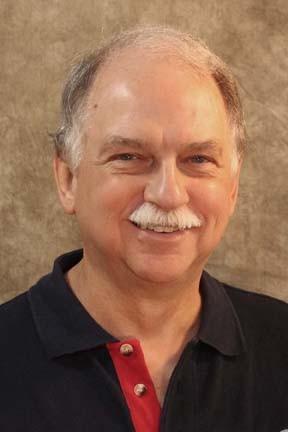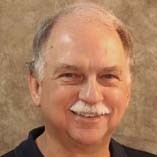Dr. Roger Hardaway Presents at 25th International Learning Conference in Greece
December 6, 2018

Dr. Roger Hardaway
Dr. Roger Hardaway, professor of history at Northwestern Oklahoma State University, recently presented at the 25th International Conference on Learning at the University of Athens, Greece.
The 2018 international conference had a special focus on education in a time of austerity and social turbulence.
The International Conference on Learning began in Sydney, Australia, in 1989, focusing on genre approaches to literacy. Since then, the focus of the conference has broadened to encompass as one of its themes “Multiliteracies” or a broader range of communications than conventionally understood under the rubric of alphabetical literacy. The conference has also extended its interest into learning more generally, and particularly, the question of “new learning” or the necessary transformations underway in teaching and learning in contemporary social, cultural and technological conditions.
The International Conference on Learning is built upon four key features: internationalism, interdisciplinarity, inclusiveness and interaction. Conference delegates include leaders in the field as well as emerging scholars, who travel to the conference from all corners of the globe and represent a broad range of disciplines and perspectives. A variety of presentation options and session types offer delegates multiple opportunities to engage, to discuss key issues in the field, and to build relationships with scholars from other cultures and disciplines.
The conference had more than 350 delegates from all over the world -- 36 countries were represented -- in attendance for paper and poster presentations, workshops and interactive sessions.
Hardaway gave his presentation on “Historically Black Colleges in the American West.”
Hardaway, who has been a Northwestern faculty member since 1990, has published three books and several articles about the experiences of African-Americans who have lived in the American West. In addition, he has presented papers on the subject at several academic conferences in both Europe and North America.
Hardaway said that during the era of slavery, state laws prohibited people from teaching slaves to read and write.
“This was done to make it difficult for slaves to forge papers indicating that they were free instead of in bondage,” Hardaway said. “Consequently, when slavery ended in 1865, most ex-slaves were illiterate.”
He said to remedy that unfortunate situation, several religious and philanthropic organizations along with the federal government (aided somewhat by state governments) began to establish schools for African-Americans from the elementary through the college levels.
“Not surprisingly, the literacy rate for African-Americans increased dramatically in the decades following the Civil War,” Hardaway said.
Hardaway said while slavery is often associated with “The South”, the so-called “peculiar institution” also existed in several states west of the Mississippi River. Eventually, all-black colleges existed in every state that still sanctioned slavery when the war started (as well as a few that had abolished it years earlier). Western states with all-black colleges included Texas, Louisiana, Arkansas, Missouri, Oklahoma and Kansas.
Hardaway said several of the all-black colleges established by private organizations went broke and have long since ceased to exist. Others, however, are still in operation. They are joined by several all-black colleges that are funded with taxpayer money.
“Today, of course, these institutions are no longer segregated and anyone can attend them,” Hardaway said. “Educators universally refer to these schools as being ‘historically black colleges and universities’ (or HBCUs). Langston University, which is public, is Oklahoma’s only HBCU still in existence. Studying the impact these schools have had (and continue to have) on the African-American communities in these states gives us additional insight into one major aspect of the African-American experience in the American West. I hope to do more research on this topic in the future.”
For more information on this topic, contact Hardaway at (580) 327-8520 or rdhardaway@nwosu.edu.
-NW-
CONTACT FOR RELEASE
Erin Davis, University Relations Specialist
eedavis@nwosu.edu, 580-327-8480
